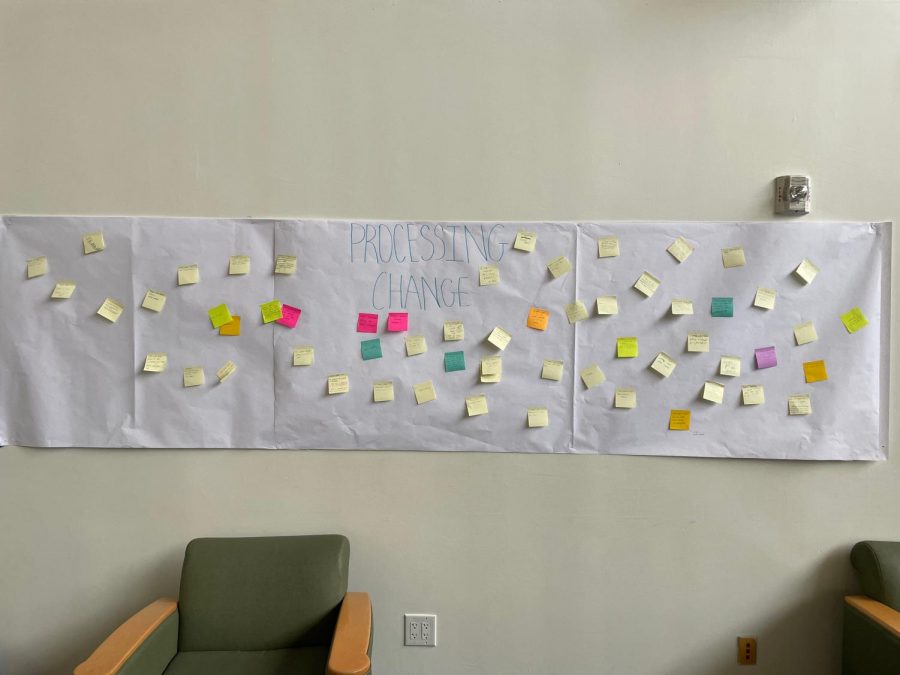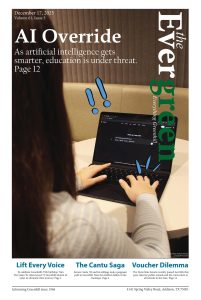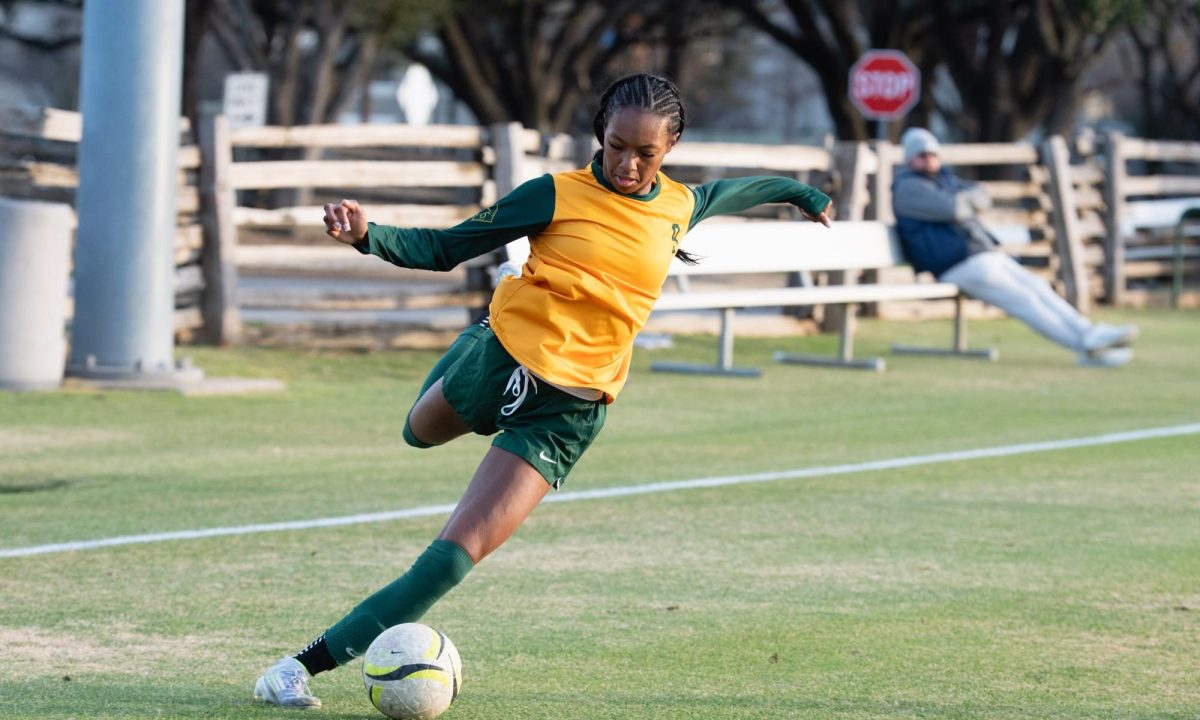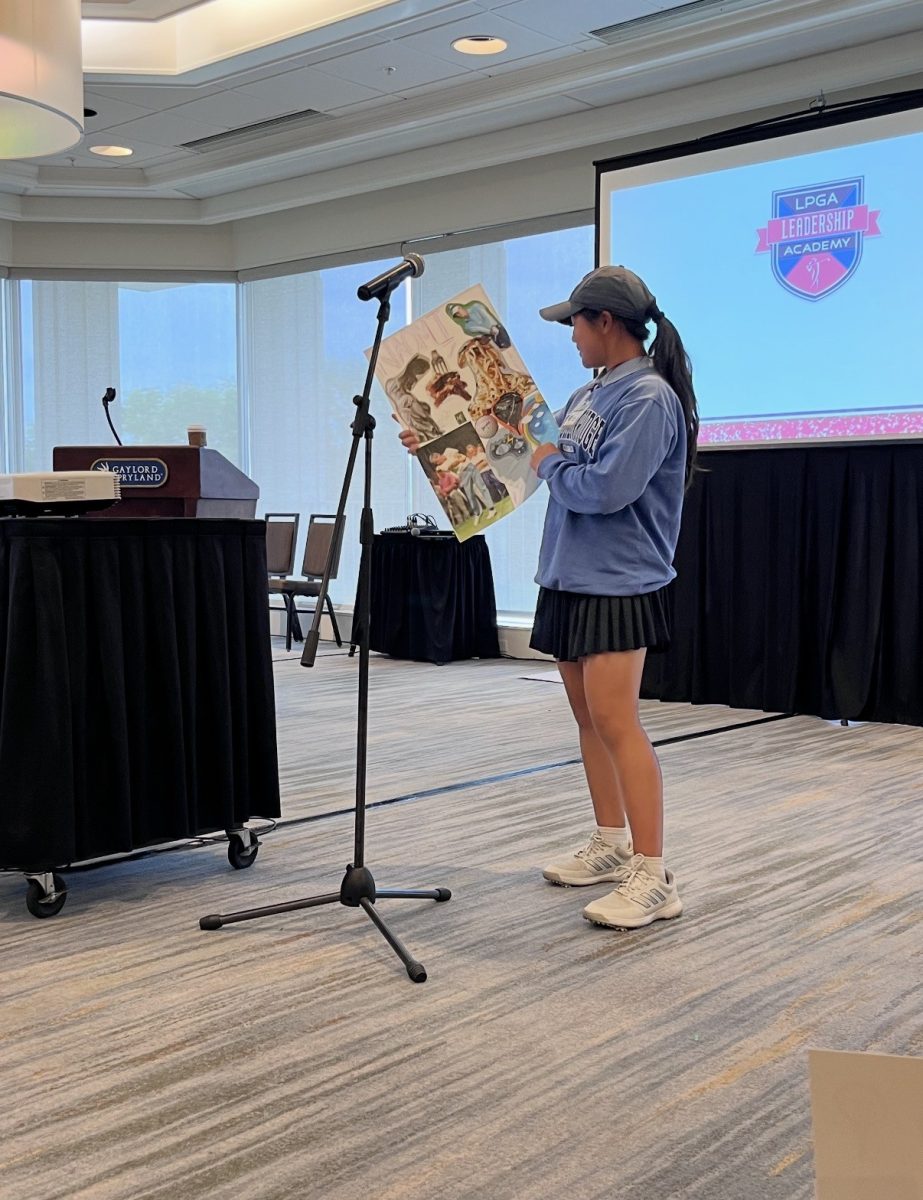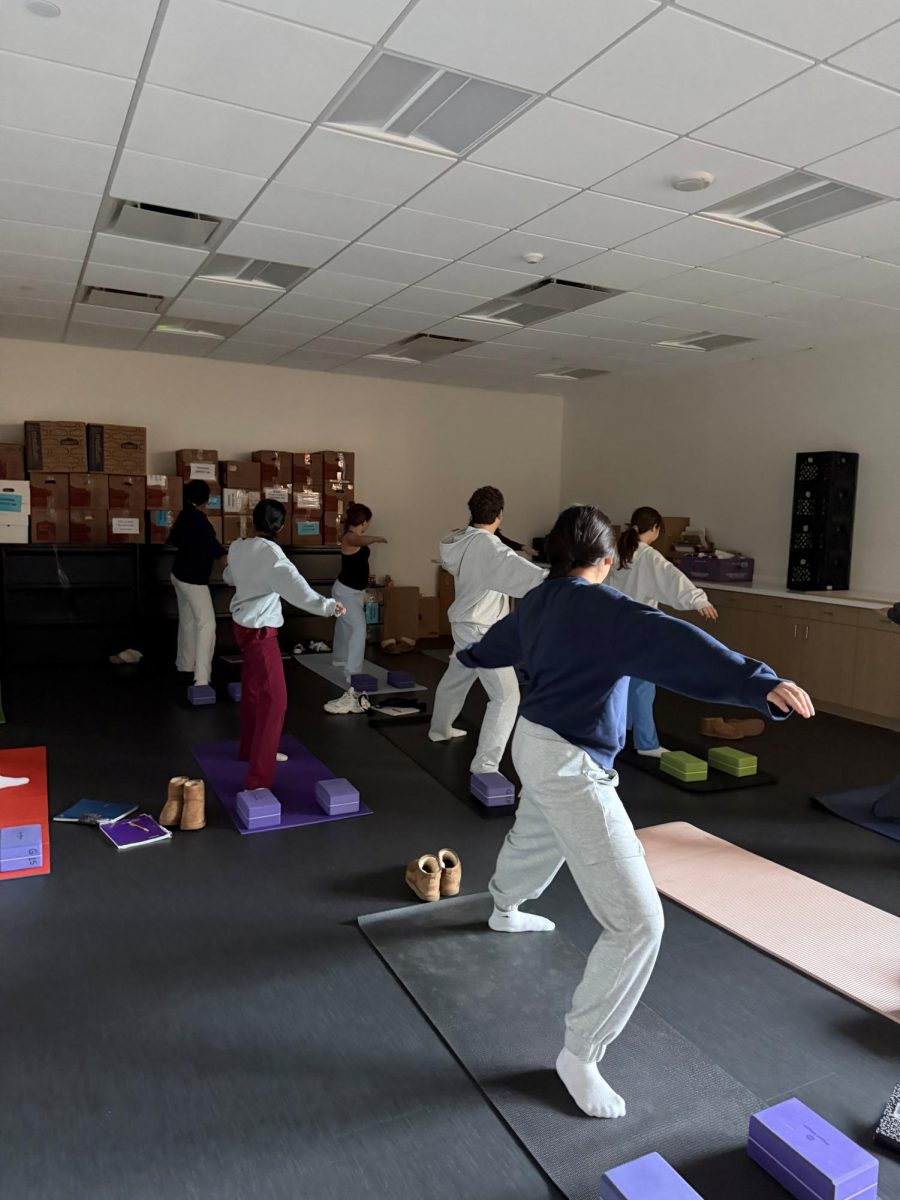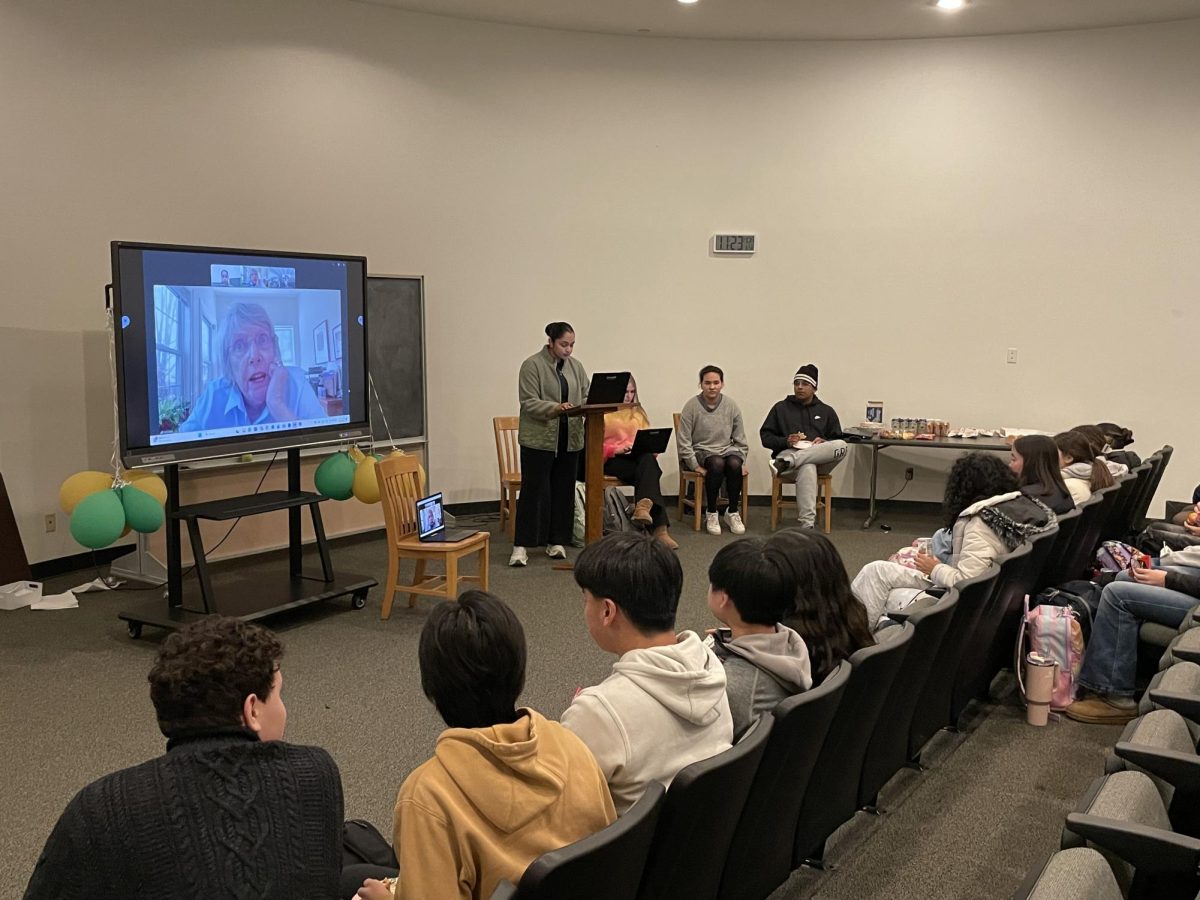Processing Change
Processing Change Initiative set up in the Elliott Center.
March 31, 2021
One historical event followed another in the beginning of 2021, creating impacts that extended to and beyond the Greenhill community. Greenhill’s 11th grade Student Council decided to provide a space for individuals to process their emotions in light of these events.
Just six days into January, the insurrection at our nation’s capital shook the United States and affected faculty, staff and students immensely. Following this significant event, Former President Trump’s impeachment trials filled the news, with people wondering if he was going to be the first president to be impeached twice.
Shortly after these weeks of chaos came the inauguration of President Biden on Jan. 20, an important day for our country, marked by the unprecedented absence of Trump at the ceremony.
Weeks later, a winter storm hit Dallas bringing with it record low temperatures, bursting pipes, and power outages.
Needless to say, there were quite a few things to process within just a few weeks for the entire community.
“It seems like every week we’ve been putting out fires; every week, something historical happens,” Upper School History teacher Amy Bresie said. “It’s been incredibly intense. It was one of these pivotal moments that’s going to be in history textbooks.”
The vision of the Processing Change Initiative primarily stemmed from the Student Council officers’ personal experiences.
“Seeing our first woman, Southeast Asian, and African American Vice President was a big moment for me,” junior Jasmine Najari, Class Secretary of the Junior Class Student Council said. “Seeing a woman being in that position through all of this was a big power move.”
With the feelings and emotions of the past month still heavy on everyone’s shoulders, members of the Junior Class Student Council, including juniors Jothi Gupta, Jason Estrada, Jasmine Najari, and Ashton Higgins, were inspired to give students across Upper School an opportunity to let any thoughts out.
“We had seen a lot of people struggling with, excited for, and nervous about certain issues,” junior Ashton Higgins, a class representative on the Student Council said. “There was not really a set place to get that emotion out, and we thought having that time to reflect would be really important. We wanted to create a physical place for everyone to come together and process the different emotions.”
Located in the Learning Commons Area, the Processing Change Board was created in order to allow for people to share their feelings anonymously with the community. Putting these feelings on a board allows for others to see and reflect on how their peers feel, and brings the community together in times of hardship.
“The hope of this board is for people to write on it and feel relieved, having found some sort of peace,” Najari said. “It will make people feel less alone and allow for their emotions to be validated.”
The officers of the Student Council recognized that each individual might have had different responses that could still be lasting, due to a lack of opportunity to talk about their thoughts with others.
“I hope that everyone takes away that a lot of these issues can affect people in very different ways,” Higgins said. “People can experience events in different ways but we should still come together and process these events and the values we all share.”
The variety of perspectives on the board also contributed to making this communal, thought provoking activity possible.
On the board, one individual’s comment read, “As the month has gone on, I think my anxiety has lessened, but I still feel very real fears in the back of my mind.”
Another comment read, “I worry about how divided society is today, [and am] hopeful because young people are becoming more educated on real-life topics.”
Given the novelty of this activity, there were inevitable challenges and concerns along the way.
“We just wanted to make sure what everyone put up there was not slanderous to anybody else,” Upper School Math teacher and Junior Class Dean Cathy Falk said.
Not only was there a concern for what people would write on the board, there was also concern on how to involve people learning remotely.
“I do think that having the split between people online and in person and the blizzard, there was a bit of an interruption,” said Higgins.
Remote students were ultimately able to participate on the board by submitting their comments on an anonymous Google Form, after which an officer would write the messages on the physical board.
Despite the challenges Greenhill’s Student Council had to overcome, the initiative was successful, according to those who participated.
Unsure of what the future will hold, the Student Council is open to doing something similar to this activity in the upcoming months.
“Going forward I would love to see something like this happening a bit more organically,” Bresie said. “I would love to talk to more people and figure out how to facilitate that.”
Regardless of which specific method is used to help the Greenhill Community process current events, the overarching message remains the same, uncertainty and fear are broadly felt across the community.
“I think the message is that we cannot give up,” Bresie said. “We cannot stop trying to foster conversations. We cannot become siloed and stop living in a community. The answer is never to stop.”

